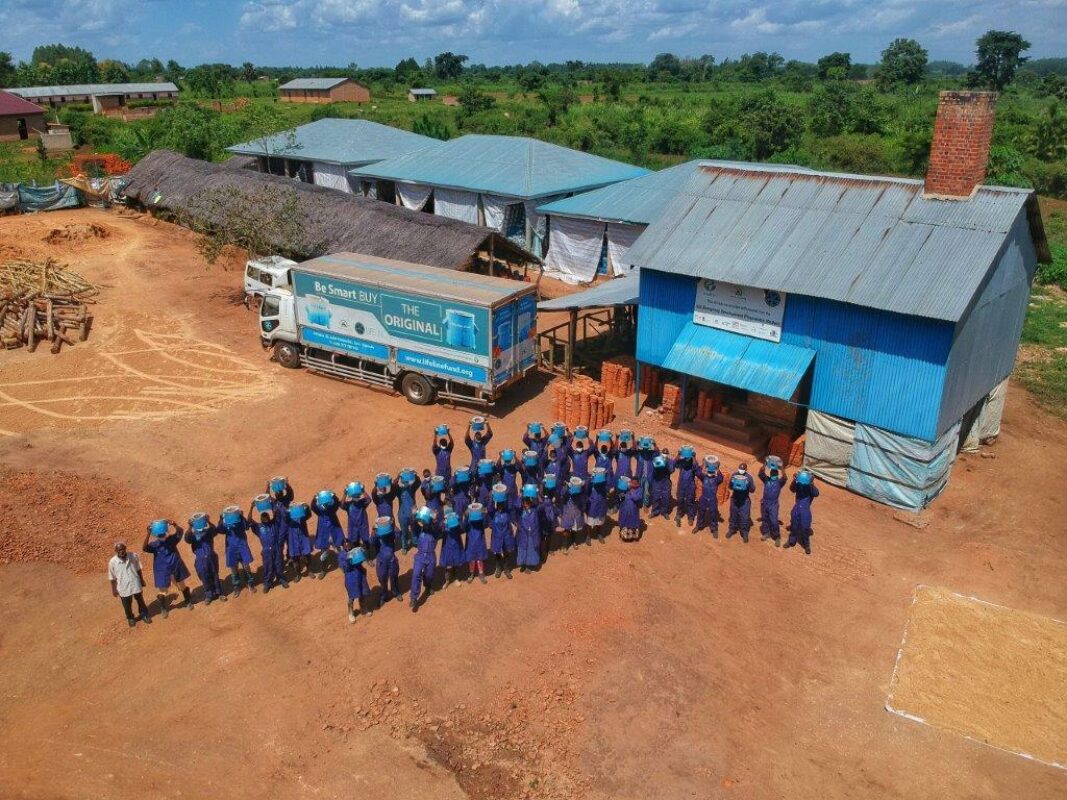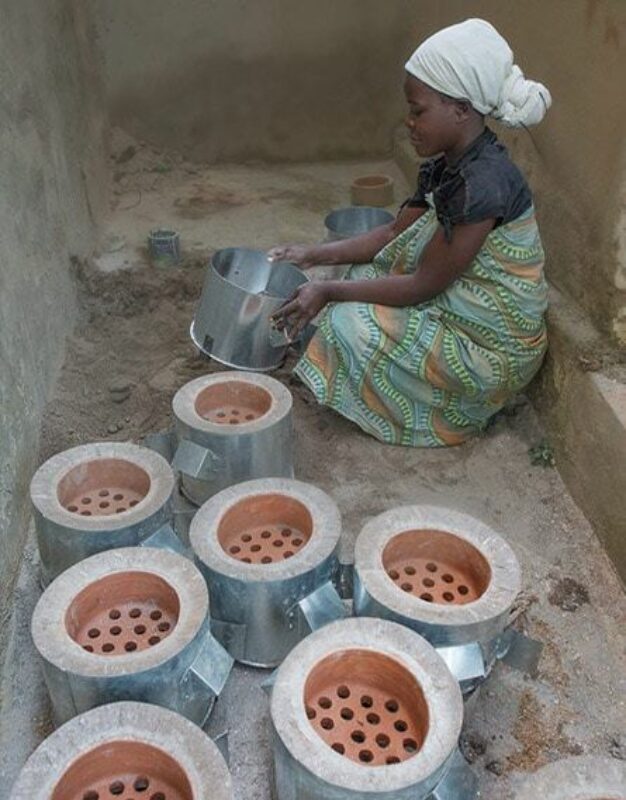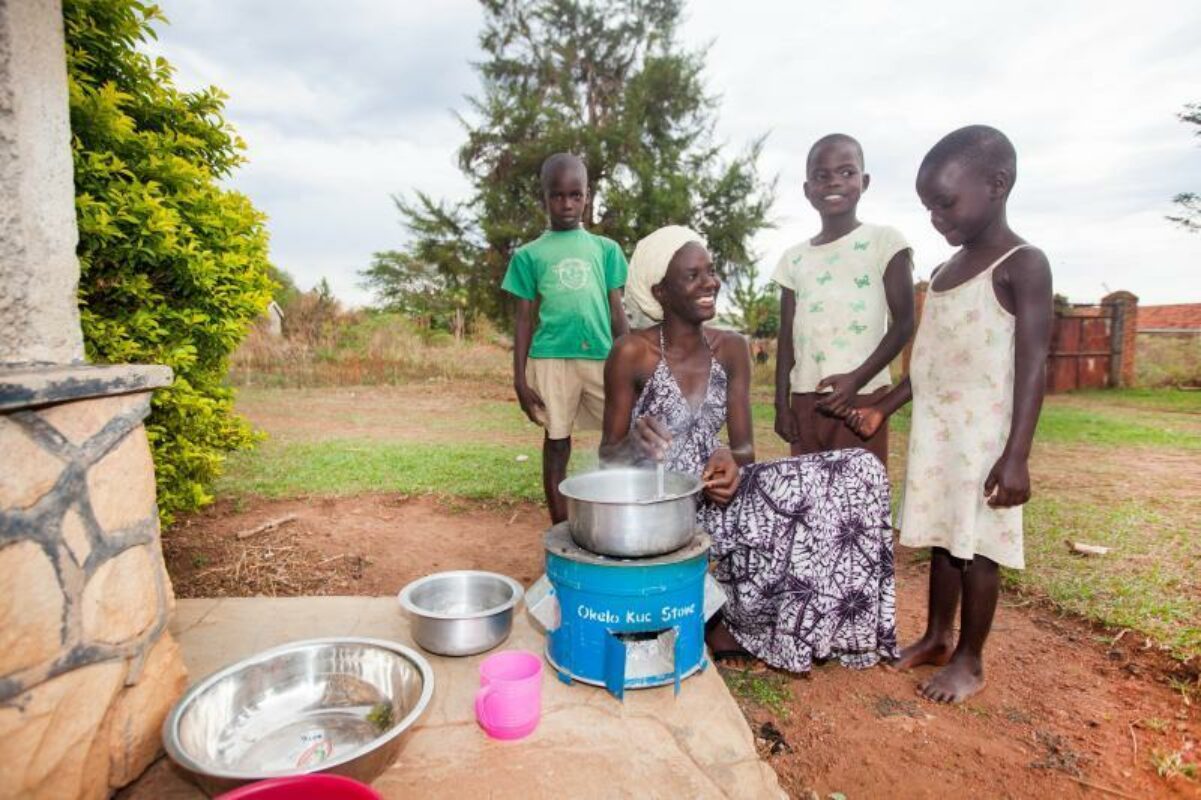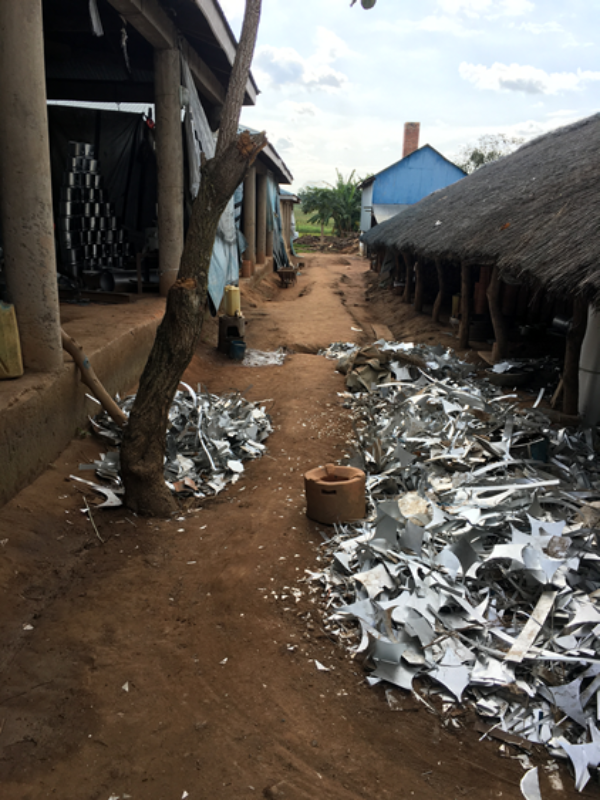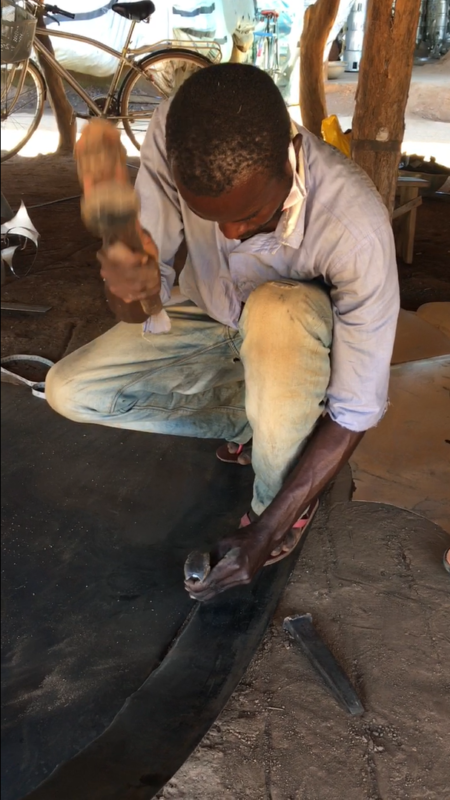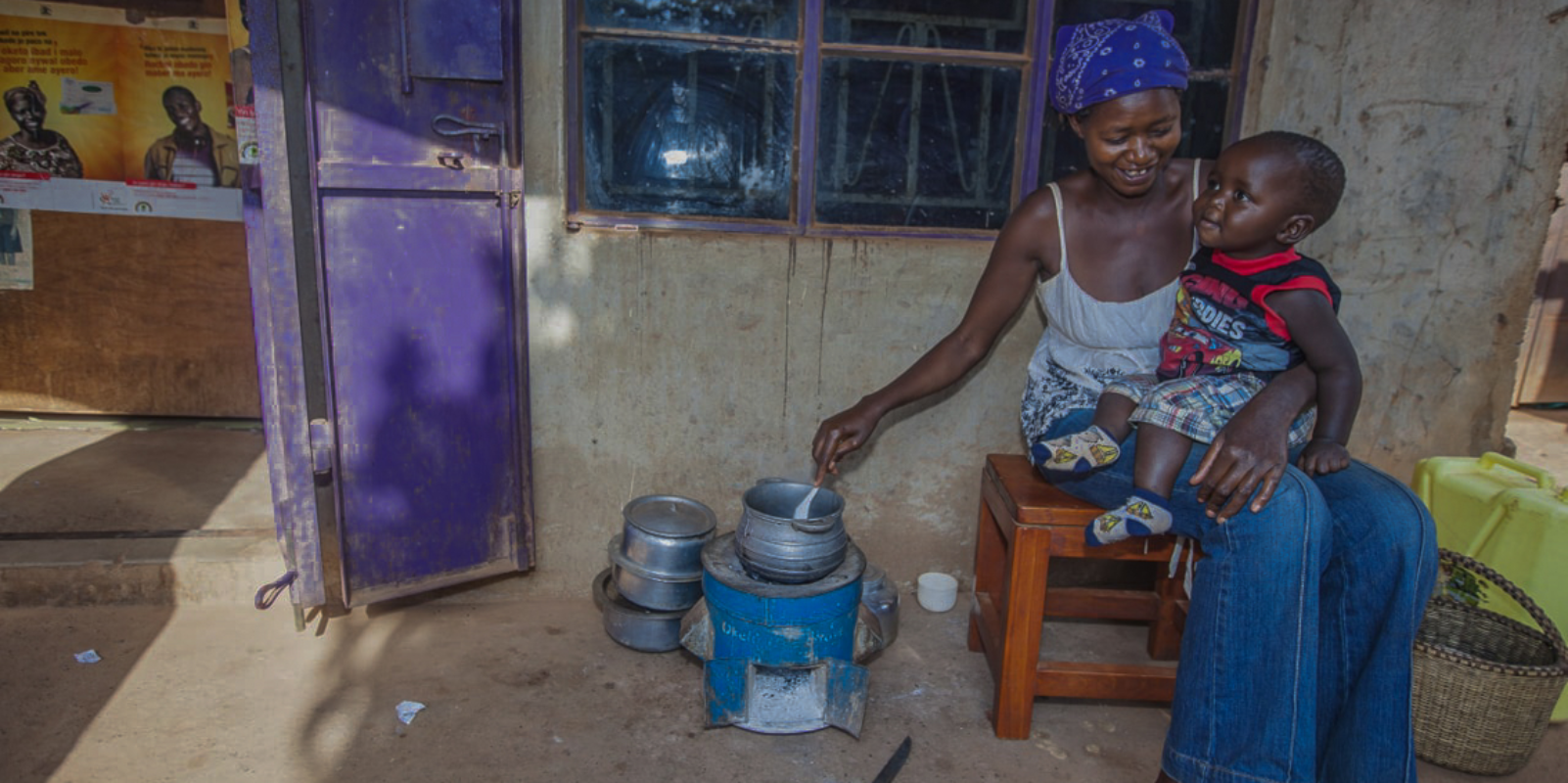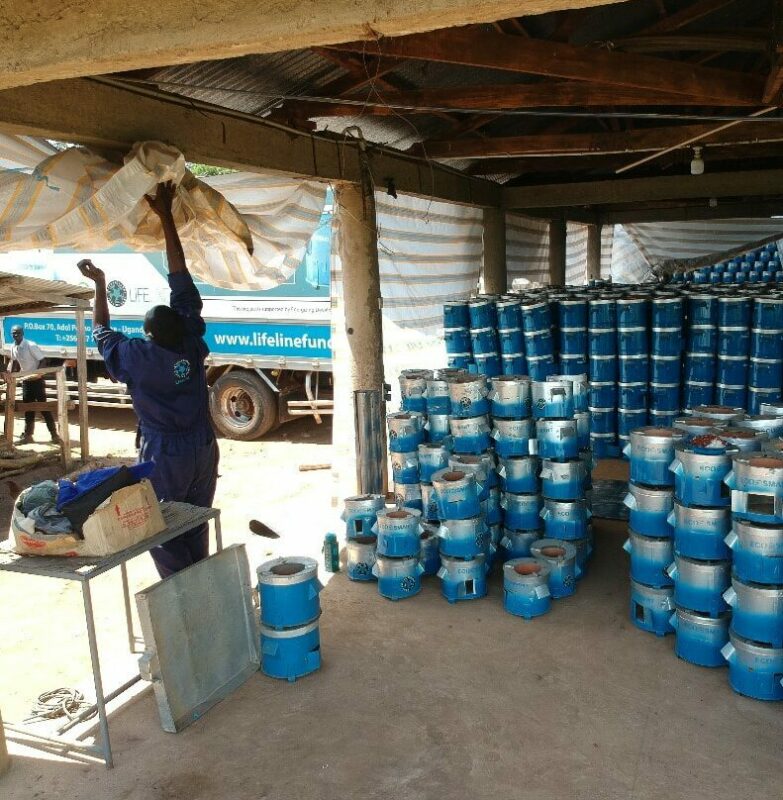The Importance of Locally Produced Cookstoves
Emilio Taltique
If you’ve been following Burn Design Lab’s work for a while, the benefits of fuel-efficient stoves are well known to you. Our current project with the International Lifeline Fund’s improved cookstove factory in Lira, Uganda, aims to take the last decade of knowledge and experience and apply those skills to improve the factory. By the end of the project, the factory will more than triple the monthly stove production and ship 15,000 stoves per month. This project will benefit the Lira community and exponentially increase our ability to impact the improved cookstove space in Uganda.
I am currently on my second visit to the factory in Lira. Driving around Lira, you see lots of agriculture and locally-owned shops and restaurants. However, when you take a closer look, you realize that beyond a few carpentry and mechanic shops, the ILF factory is one of the only places with opportunities for skilled laborers. The employees always tell me that they work at the ILF factory not only because the pay is good but also because they enjoy the technical problem-solving involved in crafting a metal stove jacket. I was excited to hear this because, as a part of the Human-Centered Design process, my goal is to bring the factory employees into the decision-making process behind improvement projects rather than just give orders. As a result of this approach, most have been able to develop their technical skills. Opportunities to learn and develop new skills will only increase once machines arrive, and we need people to understand and maintain them.
Another benefit of producing fuel-efficient stoves locally is that an efficient factory will be able to provide cookstoves to the region year after year. Once the improvements are completed, the factory will be able to provide quality products to the people in Uganda at the lowest possible price.
I have seen this firsthand. When I go around Lira for personal shopping or running errands for the factory, people ask where I’m from or work. I always say the “Okello Kuc” factory, which means “Happy Family” in the local language and was the original name of the stove. This answer is often met with a smile, and people will proudly say that they own one or know someone that works there. There is tremendous value in the factory being a staple of the community and the community’s sense of pride in the factory. People are more likely to embrace the technology and recommend the stove to others.
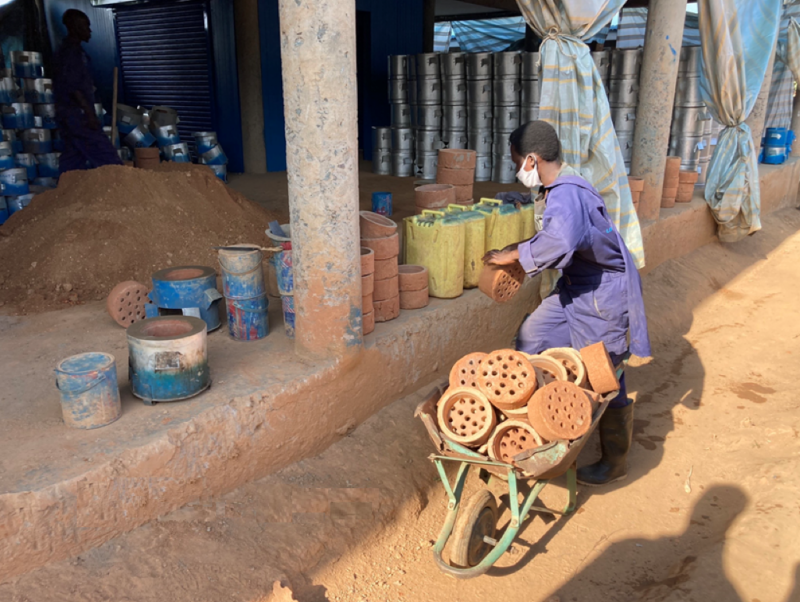
All of these benefits don’t come without their challenges. Giving directions only to come back an hour later to find people doing the opposite or reverting to old habits is immensely frustrating. But I know for this project to succeed, I need to listen first and understand where their practices come from and the root cause of their reluctance to adopt new methods. If I don’t, this project will be added to the list of countless others that drop new machines into a factory only to find them covered in dust a year later.
Fortunately, everyone here wants to see the factory improve, and Burn Design Lab is committed to this project. The first phase of the project finishes this month and we begin phase two in the new year. New building construction has begun, we’ve made improvements to the spray-painting process, and we are emphasizing building according to specifications. We’ve made significant progress already, completing the documentation of new marking templates and acquiring a regulator for compressors powering the paint spray guns. As we learn from each other, I see more and more alignment of the workers and we become closer and closer to our goal every day.
